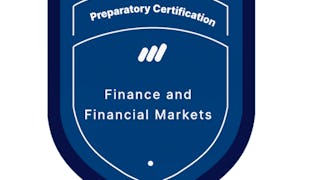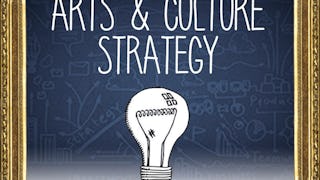Filter by
SubjectRequired
LanguageRequired
The language used throughout the course, in both instruction and assessments.
Learning ProductRequired
LevelRequired
DurationRequired
SkillsRequired
SubtitlesRequired
EducatorRequired
Explore the Corporate Culture Course Catalog
 Status: Free Trial
Status: Free TrialUniversity of Pennsylvania
Skills you'll gain: Systems Thinking, Goal Setting, Team Management, Diversity Awareness, Diversity and Inclusion, Team Building, Team Performance Management, Team Motivation, Culture, Creative Thinking, Teamwork, Emotional Intelligence, Team Leadership, Presentations, Cultural Diversity, Diversity Equity and Inclusion Initiatives, Innovation, Conflict Management, Intercultural Competence, Collaboration
 Status: Free Trial
Status: Free TrialIESE Business School
Skills you'll gain: Team Motivation, People Management, Organizational Leadership, Conflict Management, Leadership Development, Team Management, Team Building, Behavior Management, Industrial and Organizational Psychology, Leadership, Cultural Diversity, Influencing, Culture
 Status: Preview
Status: PreviewIIMA - IIM Ahmedabad
Skills you'll gain: Leadership, Organizational Leadership, Change Management, Organizational Change, Team Leadership, Leadership and Management, Business Leadership, Emotional Intelligence, Culture Transformation, Business Ethics, Personal Development, Self-Awareness, Influencing, Empowerment, Ethical Standards And Conduct, Decision Making, Relationship Building, Communication, Mindfulness
 Status: Free Trial
Status: Free TrialCorporate Finance Institute
Skills you'll gain: Environmental Social And Corporate Governance (ESG), Financial Statement Analysis, Cash Flows, Financial Statements, Annual Reports, Balance Sheet, Enterprise Risk Management (ERM), Investment Banking, Banking Services, Private Equity, Risk Management Framework, Financial Analysis, Financial Reporting, Risk Mitigation, Financial Accounting, Accounting, Credit Risk, Capital Markets, Financial Market, Recruitment
 Status: Preview
Status: PreviewUniversity of Pennsylvania
Skills you'll gain: Stakeholder Engagement, Organizational Strategy, Organizational Structure, Strategic Leadership, Leadership and Management, Organizational Effectiveness, Strategic Communication, Liberal Arts, Risk Management, Performance Measurement, Value Propositions
 Status: Free Trial
Status: Free TrialUniversity of California, Irvine
Skills you'll gain: Corporate Communications, Internal Communications, Storytelling, Strategic Communication, Media Relations, Target Audience, Social Media, Business Communication, Public Relations, Crisis Management, Marketing Communications, Presentations, Media and Communications, Social Media Marketing, Diversity Equity and Inclusion Initiatives, Employee Retention, Employee Engagement, Drive Engagement, Communication, Diversity and Inclusion
What brings you to Coursera today?
 Status: Free Trial
Status: Free TrialUniversity of Pennsylvania
Skills you'll gain: Operations Management, Operational Efficiency, Process Management, Capacity Planning, Process Analysis, Finance, Process Improvement, Capital Budgeting, Return On Investment, Go To Market Strategy, Accrual Accounting, Financial Reporting, Product Development, Financial Accounting, Marketing Strategies, Branding, Marketing, Human Capital, Decision Making, Corporate Finance
 Status: Free Trial
Status: Free TrialUniversity of Pennsylvania
Skills you'll gain: Finance, Capital Budgeting, Return On Investment, Financial Modeling, Financial Analysis, Financial Planning, Business Valuation, Financial Management, Corporate Finance, Cash Flows, Risk Analysis
 Status: Preview
Status: PreviewUniversity of London
Skills you'll gain: Corporate Strategy, Business Strategy, Resource Allocation, Organizational Strategy, Strategic Decision-Making, Mergers & Acquisitions, Business Management, Business Valuation, Analysis, Growth Strategies, Portfolio Management
 Status: Free Trial
Status: Free TrialIESE Business School
Skills you'll gain: Financial Reporting, Financial Statement Analysis, Corporate Finance, Financial Statements, Financial Accounting, Income Statement, Financial Market, Capital Budgeting, Cash Flows, Accounting, Financial Modeling, Operational Analysis, Financial Analysis, Financial Forecasting, Balance Sheet, Accrual Accounting, Business Valuation, Financial Management, Investments, Equities
 Status: NewStatus: Free Trial
Status: NewStatus: Free TrialLearnKartS
Skills you'll gain: Conflict Management, Teamwork, Active Listening, Time Management, Team Building, Emotional Intelligence, Collaboration, Prioritization, Trustworthiness, Problem Solving, Courage, Stress Management, Computer Security Awareness Training, Personal Integrity, Productivity, Writing and Editing, Diversity and Inclusion, Accountability, Information Privacy, Diversity Awareness
 Status: Preview
Status: PreviewYale University
Skills you'll gain: Financial Market, Investment Banking, Portfolio Management, Finance, Capital Markets, Financial Services, Corporate Finance, Derivatives, Investments, Financial Regulation, Risk Management, Behavioral Economics, Equities, Underwriting, Securities (Finance), Lending and Underwriting, Market Dynamics, Governance, Insurance, Environmental Social And Corporate Governance (ESG)
In summary, here are 10 of our most popular corporate culture courses
- Culture-Driven Team Building: University of Pennsylvania
- Organizational Behavior: How to Manage People: IESE Business School
- Leadership Skills: IIMA - IIM Ahmedabad
- Preparatory Certificate in Finance and Financial Markets: Corporate Finance Institute
- Arts and Culture Strategy: University of Pennsylvania
- Corporate Communications: University of California, Irvine
- Business Foundations: University of Pennsylvania
- Introduction to Corporate Finance: University of Pennsylvania
- Corporate Strategy : University of London
- Think like a CFO: IESE Business School










